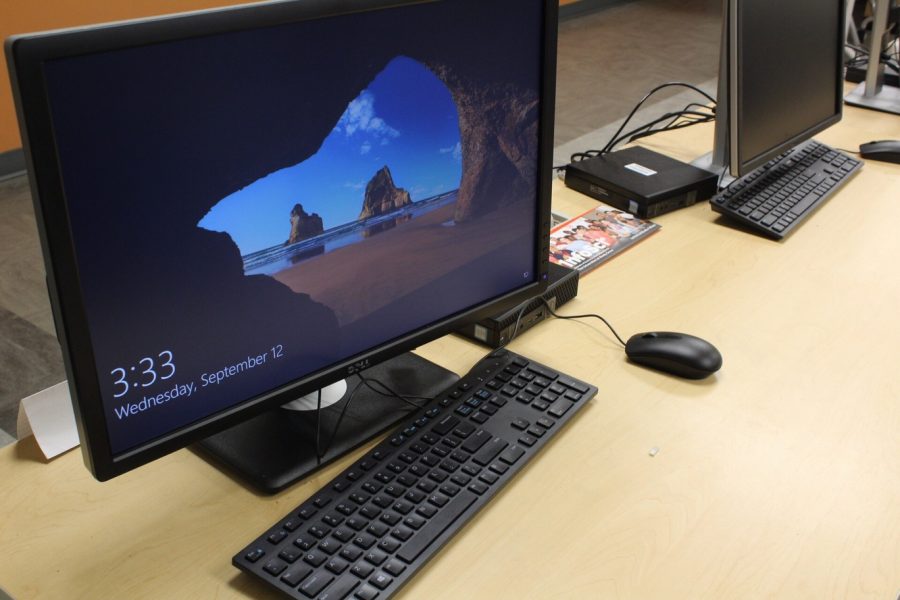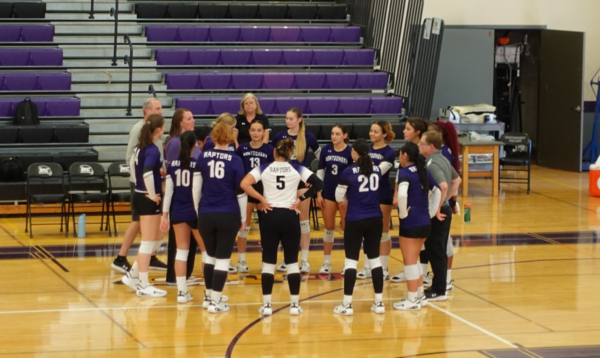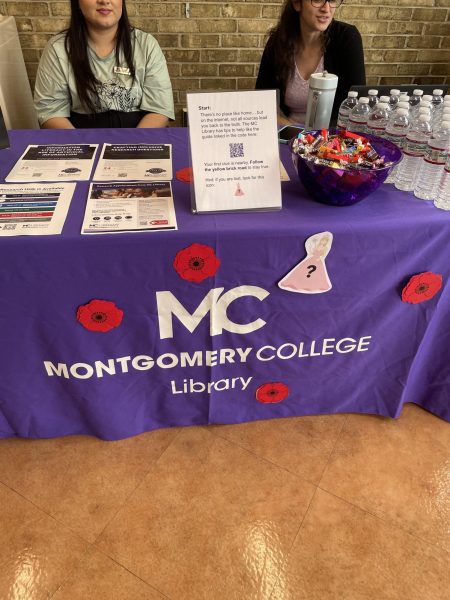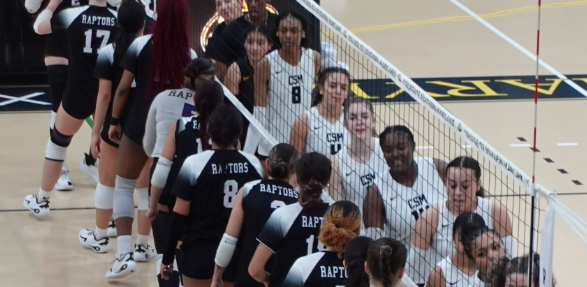Student Computers Upgraded Over The Summer
Computers in the Science Center classrooms, Macklin Tower library, and more have been replaced over the summer.
These routine upgrades are just part of the Office of Information Technology’s efforts to continue to support the college’s over 30,000 credit students, as well as almost 25,000 non-credit students in workforce development.
The college strives to provide students, faculty, and staff with solid, reliable, and robust computers. According to Jane-Ellen Miller, the college’s interim chief information officer, the goal is for computers to have a life cycle of about four years. That means that computers are refreshed and replaced every few years.
This is no short order, considering there are now over 14,000 computers across all three campuses and the workforce development programs. This is more than a 40% increase in the number of computers from five years ago.
The Germantown and Takoma Park/Silver Spring campuses also saw upgrades over the summer, but Rockville received the largest number of new computers since the upgrades were distributed proportionally to campus size and population.
At the Rockville campus specifically, around 615 new computers were installed this summer. Approximately 400 of those went to the math classrooms, which had the oldest computers.
Besides the Science Center classrooms and the Macklin Tower library, other places that the equipment was changed were the TRIO program, the biology department, the Writing, Reading, and Language center, and the automotive technology department.
“Our focus is on the academics and what happens in the classroom,” said Miller. The administrative side of technology has not been touched due to the focus on keeping the student’s experience as up-to-date as possible.
Most of the new computers on the Rockville campus are Dell OptiPlex Microcomputers. This was chosen by the IT office in conjunction with standard requirements approved by faculty members. For example, some of these requirements are that computers must have Windows 10 and they need to run at a certain speed. New monitors, keyboards, and mice were also included in the upgrades.
The average computer costs $1500, but the college is able to obtain them for $1200 a piece for educational pricing. In line with the college’s commitment to fulfill the needs of students, cheaper ones would not satisfy requirements.
The college works with Dell as its provider of information technology. “[They have] made a significant effort to work with the education market, not only with pricing and but also with providing really good service,” said Miller.
The budget for these upgrades, while expensive and expansive, is actually not enough to cover all the desired changes. Not every computer that should be upgraded found a place in the budget, but most of the computers that really needed it have been covered with the limited funds.
For example, there are some computers in the MAPEL Lab on the Germantown campus that needed upgrades, but the budget was not able to cover them this year. Instead, IT managed to augment these computers with smaller, less expensive components to improve their functionality to a satisfactory level.
In addition to actual computers, IT also oversees regular maintenance and upgrades of the network. If the servers, databases, and internet weren’t as updated and functional as the computer hardware, the newness of the computers would be for naught.
Ahmed Tarek, a computer science professor who routinely teaches in the classrooms in the Science Center building, believes that the changes were “absolutely necessary” and improve the student learning experience. “With the rapidly advancing technology in computing, student computers are required to be upgraded. The processor as well as the hardware technology are changing every year,” he said.
A Rockville librarian who wished to remain anonymous was also in favor of the changes to the computers in the library. “They are so heavily used, […] it was time for an upgrade.” She noted that the accessibility of the USB ports has been improved from before.
The Office of Information Technology strives to provide effective and efficient tools that allow students, faculty, and staff to do what they need to do. One of the most recent efforts to achieve this goal was the implementation of a 24/7/365 IT Help Desk earlier this year.







